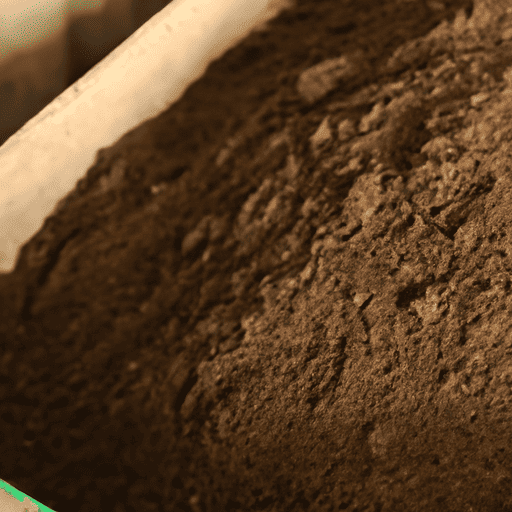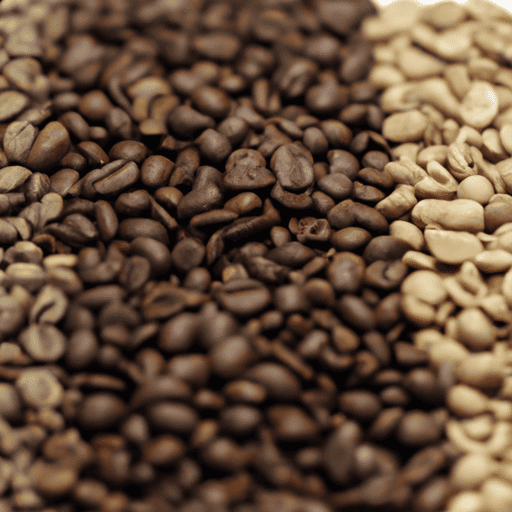Chia Seeds and Digestive Health
Boosting Digestive Health With Chia Seeds: FAQs

Looking for a simple way to improve your digestive health? Chia seeds are the perfect solution!
How do chia seeds aid digestion? Can they help reduce bloating? We’ve got the answers to all your FAQs about boosting digestive well-being with chia seeds.
In this article, we’ll explore the benefits of chia seeds and how they can promote regularity and overall gut health.
Get ready to discover a natural solution that will leave your digestive system feeling great.

Key Takeaways
- Chia seeds provide a rich source of fiber, which adds bulk to the stool and prevents constipation.
- Chia seeds reduce gut inflammation and improve nutrient absorption in the gut.
- Chia seeds support gut health and promote regularity by nourishing beneficial gut bacteria.
- Chia seeds aid digestion, reduce bloating, and contribute to overall digestive well-being.
Chia Seeds and Gut Health
Chia seeds have been shown to support gut health by providing a rich source of fiber and promoting regular bowel movements. Fiber plays a crucial role in maintaining a healthy digestive system by adding bulk to the stool and preventing constipation.
Chia seeds are particularly high in soluble fiber, which can help to reduce inflammation in the gut. Inflammation in the digestive tract can lead to various digestive disorders, such as irritable bowel syndrome (IBS) and inflammatory bowel disease (IBD).
Additionally, chia seeds have been found to have prebiotic properties, meaning they provide fuel for the beneficial bacteria in the gut microbiome. These bacteria play a vital role in maintaining a healthy gut environment and aiding in digestion.
With their fiber content and ability to reduce inflammation and support the gut microbiome, chia seeds can contribute to improved digestive health.

Now, let’s explore how exactly chia seeds aid digestion.
How Chia Seeds Aid Digestion
To understand how chia seeds aid digestion, it’s important to recognize their role in promoting a healthy gut environment. Chia seeds have been found to reduce gut inflammation, which can contribute to digestive discomfort and conditions such as irritable bowel syndrome (IBS). By reducing inflammation, chia seeds help to soothe the digestive system and promote better overall gut health.
In addition, chia seeds can improve nutrient absorption in the gut. They’re rich in fiber, which acts as a prebiotic and supports the growth of beneficial gut bacteria. These bacteria play a crucial role in breaking down food and absorbing nutrients from the digestive tract. By promoting a healthy balance of gut bacteria, chia seeds enhance nutrient absorption and optimize digestive function.
With their ability to reduce gut inflammation and improve nutrient absorption, chia seeds are a valuable addition to a digestive health regimen.

Now, let’s explore how chia seeds can also promote regularity and alleviate constipation.
Promoting Regularity With Chia Seeds
Let’s explore how chia seeds can help us maintain regularity and alleviate constipation. Chia seeds are a nutritional powerhouse that can support gut health and improve bowel movements. These tiny seeds are packed with fiber, which is essential for promoting regularity and preventing constipation. Fiber adds bulk to the stool, making it easier to pass through the digestive system. Chia seeds are also rich in omega-3 fatty acids, which have anti-inflammatory properties that can help soothe the digestive tract. Additionally, chia seeds contain antioxidants and prebiotics that nourish the beneficial bacteria in our gut, further promoting healthy digestion. To better understand the benefits of chia seeds for digestive health, take a look at the table below:
| Benefits of Chia Seeds for Digestive Health |
|---|
| High in fiber, which aids in maintaining regularity |
| Rich in omega-3 fatty acids, which have anti-inflammatory properties |
| Contains antioxidants and prebiotics, supporting a healthy gut microbiome |
Incorporating chia seeds into our diet can be an easy and delicious way to improve our digestive health and promote regular bowel movements.
Chia Seeds and Reducing Bloating
After promoting regularity and alleviating constipation, it’s time to delve into how chia seeds can help reduce bloating. Chia seeds are packed with fiber, which can aid in digestion and prevent bloating.

Here are three ways that chia seeds can help reduce abdominal discomfort and alleviate indigestion:
- Absorbing excess fluid: Chia seeds have a unique ability to absorb liquid and form a gel-like substance in the stomach. This can help to reduce the build-up of gas and fluid, thereby reducing bloating.
- Supporting gut health: Chia seeds contain prebiotics, which are beneficial for the growth of healthy gut bacteria. A healthy gut microbiome can improve digestion and reduce bloating.
- Providing anti-inflammatory properties: Chia seeds are rich in omega-3 fatty acids, which have anti-inflammatory effects. Inflammation in the digestive tract can contribute to bloating, and consuming chia seeds may help alleviate this discomfort.
Boosting Overall Digestive Well-Being With Chia Seeds
Chia seeds boost overall digestive well-being by nourishing the gut and supporting optimal digestion. These tiny seeds are packed with fiber, which plays a crucial role in promoting healthy digestion. Fiber helps to regulate bowel movements, preventing constipation and promoting regularity.
Additionally, chia seeds can improve nutrient absorption in the gut. The high fiber content of chia seeds helps to slow down the digestion process, allowing for better absorption of nutrients from the food we eat.
Moreover, chia seeds support the gut microbiota, which refers to the community of bacteria that reside in our digestive system. These beneficial bacteria play a vital role in digestion and overall health. Chia seeds provide prebiotics, which are a type of fiber that nourishes the gut microbiota and promotes a healthy balance of bacteria.
Including chia seeds in your diet can contribute to improved overall digestive well-being.
Frequently Asked Questions
Can Chia Seeds Help With Acid Reflux or Heartburn?
Chia seeds can help with acid reflux and heartburn. They have high fiber content that aids digestion and absorbs excess stomach acid. Incorporating chia seeds into your diet may provide relief from these digestive issues.
Are There Any Potential Side Effects or Risks Associated With Consuming Chia Seeds for Digestive Health?
We should be aware of potential side effects and risks when consuming chia seeds for digestive health. It’s important to note any digestive discomfort, allergies, or interactions with medications.
Can Chia Seeds Be Used as a Natural Remedy for Constipation?
Yes, chia seeds can be used as a natural remedy for constipation. They are high in fiber and can help promote regular bowel movements. However, it’s important to drink plenty of water when consuming chia seeds to prevent any potential digestive discomfort.

How Should Chia Seeds Be Prepared or Consumed to Maximize Their Digestive Benefits?
To maximize the digestive benefits of chia seeds, we should consider incorporating them into our diet in various ways. Chia seed recipes can be a great way to support gut health and boost overall digestion.
Can Chia Seeds Help Improve Symptoms of Irritable Bowel Syndrome (Ibs)?
Can chia seeds really help with managing IBS symptoms? Yes! Chia seeds are packed with fiber and antioxidants that promote gut health, reduce inflammation, and regulate bowel movements. Incorporating them into your diet can provide relief and support digestive well-being.
Conclusion
In conclusion, incorporating chia seeds into your diet can greatly benefit your digestive health. These tiny seeds are packed with fiber, omega-3 fatty acids, and antioxidants, all of which support a healthy gut.
By promoting regularity, reducing bloating, and boosting overall digestive well-being, chia seeds provide a natural and practical way to improve your digestion. So why not sprinkle some chia seeds onto your meals and let their digestive-boosting power work its magic?

They’re truly the superheroes of gut health!
Hi, I’m Sarah. I write for Turtle Tree Seeds, a news blog that loves food – all kinds of food. But especially bacon, chocolate, and veggies. We’re on a mission to show the world that you can enjoy all of those things, even kale and brussels sprouts. Because we believe that when it comes to food, there’s no such thing as guilty pleasures. Just pleasures.
I’m also a huge fan of puns (obviously).
Chia Seeds and Digestive Health
9 Ways Seeds Improve Your Gut Health

Are you looking for ways to improve your digestive health? Exciting news is in store for you!
In this article, we’re going to share with you 9 ways that seeds can help boost your gut health.
From chia seeds aiding in digestive function to reducing inflammation and improving nutrient absorption, these tiny powerhouses have got you covered.
So, let’s dive in and discover how seeds can enhance your overall gut wellness.

Key Takeaways
- Chia seeds are packed with fiber, which helps maintain a healthy digestive system and regulate bowel movements.
- Chia seeds act as a prebiotic, nourishing beneficial bacteria in the gut and promoting a healthy balance of gut flora.
- The omega-3 fatty acids in chia seeds have anti-inflammatory properties, reducing gut inflammation and improving digestion.
- Incorporating chia seeds into the diet supports a healthy gut microbiome, which is linked to various health benefits.
Chia Seeds and Gut Health
Chia seeds provide numerous benefits for our gut health. These tiny seeds are packed with fiber, which is essential for maintaining a healthy digestive system.
The high fiber content in chia seeds helps regulate bowel movements and prevents constipation. Additionally, chia seeds have been found to aid in weight loss. The soluble fiber in chia seeds forms a gel-like substance in the stomach, which helps increase feelings of fullness and reduce appetite. This can be particularly beneficial for individuals looking to shed some pounds.
Furthermore, chia seeds are rich in omega-3 fatty acids, which have been shown to improve heart health by reducing inflammation and lowering cholesterol levels.
Incorporating chia seeds into our diet can be a simple and effective way to support our gut health and overall wellness.

Chia Seeds and Digestive Function
As we continue exploring the benefits of seeds for our gut health, it’s important to highlight how chia seeds contribute to our digestive function. Chia seeds are known for their high fiber content, which plays a crucial role in maintaining regular bowel movements and preventing constipation. Here are some ways chia seeds can support our digestive system:
- Chia seeds are rich in soluble fiber, which absorbs water and forms a gel-like substance in the digestive tract, aiding in the smooth movement of waste through the intestines.
- The fiber in chia seeds can promote gut motility by providing bulk to the stool and stimulating the muscles in the digestive system.
- Chia seeds act as a prebiotic, feeding the beneficial bacteria in our gut and promoting a healthy balance of gut flora.
- The omega-3 fatty acids in chia seeds have anti-inflammatory properties, which can help reduce inflammation in the gut and improve digestion.
- Chia seeds can also help regulate blood sugar levels, preventing spikes and crashes that can affect our digestive health.
Incorporating chia seeds into our diet can be a simple and effective way to enhance our digestive function and support overall gut health.
Chia Seeds and Healthy Gut Bacteria
Chia seeds aren’t only beneficial for digestion, but they also play a key role in promoting the growth of healthy gut bacteria.
The high fiber content in chia seeds acts as a prebiotic, providing nourishment for the beneficial bacteria in our gut.

Chia Seeds Promote Digestion
To promote digestion and foster the growth of healthy gut bacteria, incorporating chia seeds into our diet is essential. Chia seeds have numerous benefits for our digestive system, including aiding in weight loss and supporting heart health.
Here are five ways chia seeds promote digestion:
- High fiber content: Chia seeds are an excellent source of dietary fiber, which helps regulate bowel movements and prevents constipation.
- Hydration: When soaked in water, chia seeds form a gel-like substance that helps retain water in the digestive system, promoting hydration and smooth bowel movements.
- Prebiotic properties: Chia seeds contain prebiotics, which nourish the beneficial bacteria in our gut, promoting a healthy gut microbiome.
- Omega-3 fatty acids: Chia seeds are rich in omega-3 fatty acids, which have anti-inflammatory properties and may reduce the risk of digestive disorders.
- Antioxidants: Chia seeds are packed with antioxidants, which help protect the digestive system from oxidative stress and inflammation.
Incorporating chia seeds into our diet can improve digestion and support overall gut health.
Gut Bacteria Benefits Chia
We have already established how chia seeds promote digestion, but let’s now delve into how chia seeds benefit our gut bacteria.

Chia seeds are a great source of fiber, which acts as a prebiotic in the gut. Prebiotics are food for the beneficial bacteria in our digestive system, helping them thrive and multiply. By nourishing these good bacteria, chia seeds support a healthy gut microbiome.
A healthy gut microbiome is essential for overall well-being. It has been linked to various health benefits, including weight loss and heart health.
The fiber in chia seeds can promote weight loss by increasing feelings of fullness and reducing calorie intake. Additionally, chia seeds contain omega-3 fatty acids, which have been shown to reduce inflammation and improve heart health.
Incorporating chia seeds into your diet can be a simple and effective way to support your gut bacteria and reap the associated health benefits.

Chia Seeds Boost Microbiome
Our research has shown that incorporating chia seeds into our diet significantly boosts the diversity and abundance of healthy gut bacteria. Chia seeds are rich in fiber, which acts as a prebiotic, providing nourishment for the beneficial bacteria in our gut. This promotes the growth of a diverse range of gut microbiota, which is essential for maintaining a healthy digestive system.
Here are five ways that chia seeds can boost our microbiome:
- Increased gut flora diversity: Chia seeds contain soluble fiber, which helps to promote the growth of a wide variety of beneficial bacteria in our gut.
- Improved gut function: The fiber in chia seeds helps to regulate bowel movements and prevent constipation, promoting a healthy gut environment.
- Enhanced nutrient absorption: Chia seeds help to improve nutrient absorption in the gut, ensuring that our body can benefit from the essential vitamins and minerals we consume.
- Reduced inflammation: Chia seeds have anti-inflammatory properties that can help to reduce inflammation in the gut, promoting a healthier gut environment.
- Balanced gut pH: Chia seeds can help to balance the pH levels in our gut, creating an optimal environment for the growth of healthy gut bacteria.
Chia Seeds and Reduced Inflammation
Chia seeds have been found to possess anti-inflammatory properties, making them a valuable addition to a gut-healthy diet. These tiny seeds are rich in omega-3 fatty acids, which have been shown to reduce inflammation in the body.
Anti-Inflammatory Properties of Chia Seeds
Chia seeds exhibit anti-inflammatory properties, which can contribute to reducing inflammation in the body. These tiny seeds are packed with nutrients that offer various health benefits, including gut healing benefits.

Here are some ways chia seeds can help fight inflammation:
- Rich in omega-3 fatty acids: Chia seeds are an excellent source of omega-3s, which have been shown to reduce inflammation in the body.
- High in antioxidants: Antioxidants help neutralize harmful free radicals and reduce oxidative stress, which can lead to inflammation.
- Fiber content: Chia seeds are a great source of fiber, which helps promote a healthy gut and reduce inflammation in the digestive system.
- Protein power: Chia seeds are a plant-based protein source that can help support muscle repair and reduce inflammation in the body.
- Essential minerals: Chia seeds contain essential minerals like magnesium and zinc, which play a role in reducing inflammation and supporting overall gut health.
Incorporating chia seeds into your diet can be a simple yet effective way to harness their inflammation-fighting properties and support a healthy gut.
Gut Health Benefits
As we delve into the gut health benefits of chia seeds and their role in reducing inflammation, it’s important to recognize the significant impact these tiny seeds can have on our overall well-being.
Chia seeds are known for their high fiber content, which aids in promoting a healthy digestive system. By promoting regular bowel movements, chia seeds can help prevent constipation and keep our gut functioning optimally.

Furthermore, chia seeds have been found to have anti-inflammatory properties. Chronic inflammation in the gut can lead to a range of health issues, including digestive disorders and weight gain. Studies have shown that chia seeds can help reduce inflammation in the gut, thereby improving gut health and potentially aiding in weight loss.
Incorporating chia seeds into our diet is simple. We can sprinkle them on top of our morning yogurt or oatmeal, add them to smoothies, or use them as an egg substitute in baking.
Reducing Gut Inflammation
Adding chia seeds to our diet can significantly reduce gut inflammation, improving our overall gut health. Here are some ways in which chia seeds can help reduce gut inflammation:
- Omega-3 fatty acids: Chia seeds are rich in omega-3 fatty acids, which have been shown to have anti-inflammatory effects. These fatty acids help reduce inflammation in the gut, alleviating symptoms such as bloating and discomfort.
- Fiber: Chia seeds are packed with fiber, which helps promote healthy digestion and reduce inflammation. Fiber acts as a prebiotic, feeding the beneficial bacteria in our gut and supporting a healthy gut microbiome.
- Antioxidants: Chia seeds contain antioxidants, such as flavonoids and phenolic compounds, which have been shown to reduce inflammation and protect against oxidative stress in the gut.
- Stress reduction: Chronic stress has been linked to gut inflammation. Chia seeds contain nutrients like magnesium, which can help reduce stress and promote a healthy gut.
- Immune system support: A healthy gut is closely linked to a strong immune system. Chia seeds contain nutrients like zinc and vitamin C, which support immune function and help reduce inflammation in the gut.
Chia Seeds and Improved Nutrient Absorption
One way we can improve nutrient absorption in our bodies is by incorporating chia seeds into our diet. Chia seeds are tiny black seeds that are packed with essential nutrients like fiber, protein, omega-3 fatty acids, and antioxidants. These nutrients not only support our overall health but also play a vital role in improving gut health and nutrient absorption.

Chia seeds are rich in soluble fiber, which forms a gel-like substance when mixed with water. This gel-like substance helps to slow down the digestion process, allowing our bodies to absorb nutrients more efficiently. Additionally, the fiber in chia seeds acts as a prebiotic, providing food for our beneficial gut bacteria. This promotes a healthy gut microbiome, which is essential for optimal nutrient absorption.
Incorporating chia seeds into our diet is simple. We can sprinkle them on top of yogurt, blend them into smoothies, or use them as an egg substitute in baking. By incorporating chia seeds into our daily routine, we can improve nutrient absorption and support our gut health.
Chia Seeds and Enhanced Bowel Regularity
To continue our discussion on the benefits of chia seeds for gut health, let’s explore how incorporating these seeds into our diet can enhance bowel regularity.
Chia seeds are packed with fiber, which is crucial for maintaining a healthy digestive system. Here are five reasons why chia seeds can improve your bowel regularity:

- High fiber content: Chia seeds are an excellent source of soluble and insoluble fiber, which helps promote regular bowel movements.
- Enhanced hydration: When consumed, chia seeds absorb liquid and form a gel-like substance in the digestive tract, which can help soften stools and prevent constipation.
- Weight management: Chia seeds can aid in weight management by promoting feelings of fullness and reducing overeating, which can contribute to irregular bowel movements.
- Balancing gut bacteria: Chia seeds contain prebiotics that serve as food for beneficial gut bacteria, supporting a healthy gut microbiome and promoting regularity.
- Overall digestive health: By supporting optimal digestion and nutrient absorption, chia seeds contribute to a healthy gut environment, which is essential for regular bowel movements.
Incorporating chia seeds into our diet can be an easy and effective way to improve bowel regularity, enhance hydration, and support weight management.
Chia Seeds and Reduced Bloating
With chia seeds, we can experience reduced bloating. Chia seeds are rich in fiber, which helps to improve digestion and prevent constipation. When we consume chia seeds, they absorb water and form a gel-like substance in our digestive system. This gel helps to soften and bulk up our stool, making it easier to pass. By promoting regular bowel movements, chia seeds can help reduce bloating and discomfort.
In addition to relieving bloating, chia seeds have other benefits for our gut health. They can aid in weight loss by promoting feelings of fullness and reducing appetite. The high fiber content of chia seeds also helps to regulate blood sugar levels and lower cholesterol, which is beneficial for heart health. Incorporating chia seeds into our diet can be a simple and effective way to support a healthy gut and overall well-being.
Chia Seeds and Increased Satiety
Chia seeds increase feelings of fullness, helping us to eat less and maintain a healthy weight. Incorporating chia seeds into our diet can be beneficial for appetite control and promoting a sense of satisfaction after meals. Here are five reasons why chia seeds can increase fullness:

- High in fiber: Chia seeds are packed with fiber, which absorbs water and expands in the stomach, promoting a feeling of fullness.
- Protein content: Chia seeds are a good source of plant-based protein, which can help curb hunger and reduce overall calorie intake.
- Healthy fats: Chia seeds are rich in omega-3 fatty acids, which have been shown to enhance satiety and reduce appetite.
- Slow digestion: Due to their gel-like consistency when mixed with liquid, chia seeds slow down digestion, allowing us to feel full for longer.
- Nutrient density: Chia seeds are packed with essential vitamins, minerals, and antioxidants, providing nourishment and helping to regulate appetite.
Chia Seeds and Overall Gut Wellness
Continuing from the previous subtopic, incorporating chia seeds into our diet offers numerous benefits for our overall gut wellness.
Chia seeds are packed with fiber, which is essential for a healthy digestive system. Fiber helps regulate bowel movements, prevents constipation, and promotes the growth of beneficial gut bacteria.
Chia seeds also contain omega-3 fatty acids, which have anti-inflammatory properties and can reduce gut inflammation. Additionally, chia seeds can aid in weight loss. When consumed, they absorb water and expand in the stomach, creating a feeling of fullness and reducing appetite. This can help control calorie intake and promote healthy weight management.
To incorporate chia seeds into your diet, try adding them to smoothies, yogurt, or oatmeal. You can also use them as an egg substitute in baking recipes.

With their numerous health benefits and versatility in recipes, chia seeds are a great addition to support overall gut wellness and weight loss.
Frequently Asked Questions
Can Chia Seeds Be Consumed by Individuals With Digestive Disorders Such as Irritable Bowel Syndrome (Ibs) or Crohn’s Disease?
Chia seeds can be consumed by individuals with digestive disorders such as IBS or Crohn’s disease. They have been found to improve gut health and can be incorporated into a gut healthy diet.
Are There Any Potential Side Effects or Risks Associated With Consuming Chia Seeds for Gut Health?
There are potential risks associated with consuming chia seeds for gut health, but when consumed in moderation, they can provide numerous benefits. The recommended daily intake of chia seeds for gut health is around 1-2 tablespoons.
How Do Chia Seeds Compare to Other Types of Seeds in Terms of Their Impact on Gut Health?
When comparing chia seeds to other types of seeds, it’s important to consider their impact on gut health. Incorporating seeds like chia or flax into a gut-healthy diet can provide numerous benefits.

Can Chia Seeds Help Alleviate Symptoms of Acid Reflux or Heartburn?
Chia seeds can be beneficial for alleviating symptoms of acid reflux or heartburn. They have properties that can help soothe the digestive system and reduce inflammation, making them a natural remedy for digestive disorders.
Are There Any Specific Recommendations or Guidelines for Incorporating Chia Seeds Into a Gut-Healthy Diet?
Incorporating chia seeds into a gut-healthy diet can be beneficial. We recommend trying chia seed recipes, as these tiny seeds are packed with nutrients and can aid in weight loss.
Conclusion
In conclusion, incorporating chia seeds into your diet can have a profound impact on your gut health. These small but mighty seeds help regulate digestion, promote healthy gut bacteria, reduce inflammation, and improve nutrient absorption.
They also enhance bowel regularity, reduce bloating, increase satiety, and contribute to overall gut wellness. So, just like seeds that bring life to a barren land, chia seeds can bring vitality and balance to your gut, ensuring a healthy and thriving digestive system.

Hi, I’m Sarah. I write for Turtle Tree Seeds, a news blog that loves food – all kinds of food. But especially bacon, chocolate, and veggies. We’re on a mission to show the world that you can enjoy all of those things, even kale and brussels sprouts. Because we believe that when it comes to food, there’s no such thing as guilty pleasures. Just pleasures.
I’m also a huge fan of puns (obviously).
Chia Seeds and Digestive Health
Securely Managing Constipation With Time-Honored Seeds

Many people believe that dealing with constipation has to be uncomfortable, but we have discovered a simple and traditional solution that can alleviate discomfort and promote healthy digestion: chia seeds.
In this article, we’ll show you how incorporating these tiny powerhouses into your diet can make a world of difference. Get ready to say goodbye to constipation and hello to a happier, more regular you.
Let’s dive in!
Key Takeaways
- Chia seeds are a rich source of dietary fiber, promoting digestive health.
- Chia seeds alleviate constipation by adding bulk to the stool and aiding in hydration and lubrication of the intestines.
- Including chia seeds in your diet through smoothies or chia seed pudding can help relieve constipation.
- It is important to start with small amounts of chia seeds, drink plenty of water, and consult with a healthcare provider if necessary when using chia seeds for constipation relief.
The Role of Chia Seeds in Digestive Health
Chia seeds offer significant benefits for our digestive health by providing a rich source of dietary fiber. These tiny seeds are packed with fiber, which aids in weight loss by promoting satiety and preventing overeating.

Additionally, the soluble fiber found in chia seeds helps to lower cholesterol levels, reducing the risk of heart disease and promoting heart health. Consuming chia seeds regularly can contribute to maintaining a healthy weight and reducing the risk of cardiovascular issues.
However, their benefits extend beyond weight loss and heart health. Chia seeds are also known to alleviate constipation by absorbing water and forming a gel-like substance in the digestive tract, which helps to soften stool and promote regular bowel movements.
Now, let’s explore how chia seeds alleviate constipation.
How Chia Seeds Alleviate Constipation
Continuing our exploration of the benefits of chia seeds in digestive health, let’s now delve into how these time-honored seeds effectively alleviate constipation.

Chia seeds are renowned for their fiber content, which plays a crucial role in promoting regular bowel movements and relieving constipation. Here’s how chia seeds work their magic:
- Fiber-rich composition: Chia seeds are packed with soluble and insoluble fiber, which adds bulk to the stool and helps move waste through the digestive system efficiently.
- Hydration and lubrication: When mixed with liquid, chia seeds form a gel-like substance that aids in hydration and lubrication of the intestines, making it easier to pass stools.
Incorporating Chia Seeds Into Your Diet
Now that we understand how chia seeds alleviate constipation, how can we incorporate them into our diet for optimal digestive health?
One delicious way to enjoy the benefits of chia seeds is by including them in smoothie recipes. Simply blend together your favorite fruits, vegetables, and a tablespoon of chia seeds for a nutrient-packed beverage that aids digestion.
Another option is to make chia seed pudding, which can be a satisfying and gentle way to support regular bowel movements. To make chia seed pudding, combine chia seeds with your choice of liquid, such as almond milk or coconut milk, and let it sit overnight in the refrigerator. In the morning, you’ll have a creamy and fiber-rich pudding that promotes a healthy digestive system.

Chia Seed Recipes for Relieving Constipation
To effectively relieve constipation, we can incorporate chia seeds into our diet through various delicious recipes. Here are two simple and tasty options:
- Chia Seed Smoothies:
- Blend 1 cup of your favorite fruits (such as berries or banana) with 2 tablespoons of chia seeds and 1 cup of liquid (milk, yogurt, or plant-based milk).
- Enjoy a fiber-rich and refreshing smoothie that can help promote regular bowel movements.
- Chia Seed Pudding:
- Combine 1/4 cup of chia seeds with 1 cup of milk (dairy or non-dairy), a sweetener of your choice (such as honey or maple syrup), and flavorings (like vanilla extract or cocoa powder).
- Let it sit in the fridge overnight or for at least 4 hours until it thickens into a pudding-like consistency.
- Indulge in a creamy and nutritious treat that can aid in relieving constipation.
Incorporating these chia seed recipes into our diet can provide a convenient and enjoyable way to support regularity and alleviate constipation.
Tips and Precautions for Using Chia Seeds for Constipation
Incorporating chia seeds into our diet for constipation relief requires some tips and precautions to ensure safe and effective usage. Chia seeds have gained popularity due to their numerous health benefits, including their ability to promote bowel regularity.
However, it’s important to be aware of potential side effects and take necessary precautions when using chia seeds for constipation. Firstly, it’s crucial to start with small amounts and gradually increase the intake to avoid digestive discomfort.

Additionally, it’s important to drink plenty of water when consuming chia seeds as they absorb liquid and can cause dehydration if not properly hydrated.
Lastly, individuals with certain medical conditions such as swallowing difficulties or bowel obstructions should consult with their healthcare provider before incorporating chia seeds into their diet.
Frequently Asked Questions
Can Chia Seeds Cause Any Side Effects When Used for Constipation Relief?
Chia seeds may have potential side effects when used for constipation relief, such as bloating or gas. To incorporate chia seeds into your diet for constipation relief, start with a small amount and gradually increase intake while staying hydrated.
Are There Any Specific Guidelines or Recommended Dosages for Using Chia Seeds to Relieve Constipation?
There are recommended dosages for chia seeds to relieve constipation, and they can provide potential benefits for overall digestive health. It’s important to follow these guidelines for safe and effective use.

Can Chia Seeds Be Used to Treat Chronic Constipation?
Yes, chia seeds can be used as an alternative remedy for chronic constipation. They are rich in dietary fiber, which plays a crucial role in promoting digestive health and relieving constipation.
Are There Any Contraindications or Precautions for Using Chia Seeds for Constipation Relief?
There are no known contraindications or precautions for using chia seeds for constipation relief. However, potential side effects may include bloating or gas. It’s always best to consult with a healthcare professional for personalized advice.
How Long Does It Typically Take for Chia Seeds to Alleviate Constipation Symptoms?
Chia seeds can help alleviate constipation symptoms. We can incorporate them into our diet for relief. It typically takes a few days for chia seeds to work their magic and provide relief.
Conclusion
In conclusion, chia seeds are a time-honored and effective solution for managing constipation. Their rich fiber content and ability to absorb water make them a natural remedy for promoting healthy digestion.

By incorporating chia seeds into your diet and trying out some delicious recipes, you can alleviate constipation and improve your overall digestive health.
Remember to follow the tips and precautions mentioned to ensure safe and effective use of chia seeds for constipation relief.
Hi, I’m Sarah. I write for Turtle Tree Seeds, a news blog that loves food – all kinds of food. But especially bacon, chocolate, and veggies. We’re on a mission to show the world that you can enjoy all of those things, even kale and brussels sprouts. Because we believe that when it comes to food, there’s no such thing as guilty pleasures. Just pleasures.
I’m also a huge fan of puns (obviously).
Chia Seeds and Digestive Health
10 Best Ways Seeds Aid Digestive Health

You may be asking yourself: Can something as small as a seed really help with digestive health? Prepare to be amazed.
In this article, we’re going to share with you the 10 best ways seeds can aid your digestion. From chia seeds supporting intestinal health to their natural remedies for digestive discomfort, we’ve got you covered.
So sit back, relax, and get ready to discover the incredible benefits of seeds for your digestive system.
Key Takeaways
- Chia seeds are a rich source of fiber, which promotes regular bowel movements and prevents constipation.
- The fiber in chia seeds also helps in reducing appetite and promoting weight loss.
- Chia seeds’ soluble fiber can lower cholesterol levels, reducing the risk of heart disease.
- Chia seeds support gut health by promoting the growth of beneficial bacteria, reducing inflammation, and improving overall digestion.
Chia Seeds and Gut Health
Chia seeds contribute to improved gut health through their ability to regulate digestion and alleviate digestive issues. These tiny seeds are packed with fiber, which is essential for maintaining a healthy digestive system. Fiber acts as a prebiotic, providing food for the beneficial bacteria in our gut, promoting their growth and diversity. This, in turn, helps to enhance digestion and prevent constipation.

Chia seeds also contain omega-3 fatty acids, which have anti-inflammatory properties that can reduce inflammation in the gut and alleviate symptoms of digestive disorders such as irritable bowel syndrome (IBS). Additionally, chia seeds are rich in antioxidants, which can protect the gut lining from damage caused by oxidative stress.
It’s important to note that while chia seeds offer numerous benefits for gut health, it’s essential to consume them in moderation and with plenty of fluids to avoid potential side effects such as bloating or constipation.
The Role of Chia Seeds in Digestion
As we continue exploring the benefits of seeds for digestive health, it’s important to delve into the role that chia seeds play in improving digestion. Chia seeds aren’t only packed with essential nutrients, but they also contain high amounts of fiber, which is beneficial for maintaining a healthy digestive system.
Here are four ways chia seeds can aid digestion:

- Promote regular bowel movements: The fiber content in chia seeds helps add bulk to your stool, making it easier to pass through the digestive tract.
- Prevent constipation: Chia seeds act as a natural laxative, keeping your bowel movements regular and preventing constipation.
- Reduce inflammation: Chia seeds are rich in omega-3 fatty acids, which have anti-inflammatory properties that can help soothe the digestive system.
- Improve gut health: The soluble fiber in chia seeds acts as a prebiotic, nourishing the beneficial bacteria in your gut and promoting a healthy gut microbiome.
To incorporate chia seeds into your daily meals, you can sprinkle them on top of yogurt, blend them into smoothies, or use them as an egg substitute in baked goods. By including chia seeds in your diet, you can enjoy the benefits of improved digestion and overall health.
How Chia Seeds Support Intestinal Health
How do chia seeds contribute to the support of intestinal health?
Chia seeds are a natural remedy for digestive issues such as constipation and bloating. These tiny seeds are packed with fiber, which helps regulate bowel movements and promote a healthy digestive system. The soluble fiber in chia seeds absorbs water, forming a gel-like substance that adds bulk to the stool and aids in its smooth passage through the intestines. This helps prevent constipation and promotes regularity.
Additionally, chia seeds contain beneficial omega-3 fatty acids, which have anti-inflammatory properties that can help reduce bloating and discomfort in the digestive tract. By incorporating chia seeds into your diet, you can support your intestinal health and improve overall digestion.

Now, let’s explore how chia seeds can be used as a natural digestive remedy.
Chia Seeds as a Natural Digestive Remedy
Chia seeds have long been recognized for their ability to promote digestion and alleviate digestive issues.
As a natural remedy, chia seeds are rich in fiber, which helps to regulate bowel movements and prevent constipation.
Additionally, chia seeds contain essential fatty acids that can reduce inflammation in the digestive tract, further supporting a healthy digestive system.

Chia Seeds Promote Digestion
We’ve discovered that incorporating chia seeds into our diet promotes digestion and serves as a natural digestive remedy. Here are four reasons why chia seeds are beneficial for digestive health:
- High Fiber Content: Chia seeds are an excellent source of fiber, which helps regulate bowel movements and prevent constipation. A single ounce of chia seeds contains a whopping 10 grams of fiber, making it an easy and convenient way to increase your daily fiber intake.
- Omega-3 Fatty Acids: Chia seeds are rich in omega-3 fatty acids, which have been shown to reduce inflammation in the digestive tract and promote overall gut health. These healthy fats can help alleviate symptoms of digestive disorders such as Crohn’s disease and ulcerative colitis.
- Hydration: When soaked in water, chia seeds form a gel-like substance that can help keep your digestive system hydrated. This can prevent common digestive issues like bloating and indigestion.
- Antioxidants: Chia seeds are packed with antioxidants, which can help protect the digestive system from damage caused by free radicals. These antioxidants also support heart health and may aid in weight loss.
Incorporating chia seeds into your diet can be a simple and effective way to promote digestion and maintain a healthy gut.
Natural Remedy for Digestion
Incorporating chia seeds into our diet continues to be a natural remedy for digestion, thanks to their numerous health benefits. Chia seeds are packed with fiber, which is essential for maintaining a healthy digestive system. Fiber helps to promote regular bowel movements and prevent constipation.
Additionally, chia seeds are rich in omega-3 fatty acids, which have been shown to reduce inflammation in the gut and improve overall digestive health. These tiny seeds also contain antioxidants, which can help protect the digestive system from damage caused by free radicals.

Chia seeds can be easily incorporated into our daily routine by adding them to smoothies, yogurt, or oatmeal. Their natural digestive health benefits make them an excellent choice for those seeking natural digestion remedies.
The Fiber Power of Chia Seeds for Digestion
Chia seeds are a powerhouse of fiber, making them an excellent addition to support digestive health. With a whopping 10 grams of fiber per ounce, chia seeds provide a significant portion of the recommended daily intake.
This high fiber content helps promote regular bowel movements, prevent constipation, and support overall gastrointestinal functioning.
Chia Seeds and Fiber
One key element for optimal digestion is the high fiber content found in chia seeds. Incorporating chia seeds into your diet can provide numerous benefits for digestive health. Here are four ways chia seeds and fiber can help support digestion:

- Aid in Weight Loss: Chia seeds are packed with fiber, which can help you feel full and satisfied. This can prevent overeating and promote weight loss.
- Improve Bowel Regularity: The soluble fiber in chia seeds absorbs water, forming a gel-like substance that adds bulk to the stool. This can help regulate bowel movements and prevent constipation.
- Support Gut Health: The fiber in chia seeds acts as a prebiotic, providing nourishment for beneficial gut bacteria. This can promote a healthy gut microbiome and improve overall digestion.
- Enhance Recipes: Chia seeds can easily be incorporated into recipes like smoothies, oatmeal, and baked goods. This adds a boost of fiber and nutrients to your meals, improving digestion and overall health.
By incorporating chia seeds and their fiber content into your diet, you can enjoy improved digestion and reap the many benefits they offer.
Now, let’s explore the digestive benefits of chia in more detail.
Digestive Benefits of Chia
To fully understand the digestive benefits of chia seeds, let’s delve into the fiber power they possess for enhancing digestion.
Chia seeds are known for their high fiber content, which plays a crucial role in promoting digestive health. The soluble fiber found in chia seeds forms a gel-like substance when mixed with water, which helps to soften the stool and prevent constipation. This gentle laxative effect can aid in maintaining regular bowel movements and preventing digestive discomfort.

Additionally, the fiber in chia seeds can also contribute to weight loss by promoting a feeling of fullness and reducing appetite.
Furthermore, research suggests that chia seeds may have a positive impact on heart health. The soluble fiber in chia seeds can help to lower cholesterol levels, reducing the risk of heart disease.
Incorporating chia seeds into your diet can be a simple and effective way to support both digestive and heart health.
Chia Seeds and Balancing Gut Microbiota
In our quest for optimal digestive health, we explore how chia seeds contribute to balancing the gut microbiota. Chia seeds aren’t only packed with essential nutrients and fiber, but they also play a crucial role in maintaining a healthy balance of gut bacteria.

Here are four ways chia seeds help in balancing gut microbiota and improving digestion:
- Rich in fiber: Chia seeds are an excellent source of soluble and insoluble fiber, which promotes the growth of beneficial bacteria and helps regulate bowel movements.
- Prebiotic properties: Chia seeds contain prebiotics that serve as food for probiotics, the good bacteria in our gut, promoting their growth and enhancing overall gut health.
- Anti-inflammatory effects: Chia seeds possess anti-inflammatory properties that can help reduce gut inflammation and support a healthy gut environment.
- Omega-3 fatty acids: Chia seeds are a fantastic plant-based source of omega-3 fatty acids, which have been shown to improve gut health and reduce the risk of digestive disorders.
With their ability to balance gut microbiota, chia seeds are a soothing aid for digestive disorders.
Chia Seeds: A Soothing Aid for Digestive Disorders
Now let’s delve into how chia seeds can be a soothing aid for digestive disorders, building upon the previous subtopic’s exploration of their role in balancing gut microbiota.
Chia seeds have gained popularity not only for their ability to support digestion but also for their potential impact on weight loss and heart health. These tiny seeds are packed with fiber, which can promote satiety and help regulate bowel movements, making them a valuable tool for those struggling with digestive disorders.

Additionally, the soluble fiber found in chia seeds can help lower cholesterol levels and reduce the risk of heart disease. Incorporating chia seeds into your diet may not only provide relief for digestive issues but also contribute to overall well-being by supporting weight management and heart health.
Enhancing Digestive Enzymes With Chia Seeds
As we explore the role of chia seeds in promoting digestive health, let’s now delve into how these tiny seeds can enhance digestive enzymes.
Chia seeds have been found to increase enzyme activity in the digestive system, which can improve the breakdown and absorption of nutrients from the food we eat.
Here are four ways chia seeds can enhance digestive enzymes:

- Increase amylase activity: Amylase is an enzyme responsible for breaking down carbohydrates. Chia seeds have been shown to increase amylase activity, aiding in the digestion of carbohydrates.
- Boost lipase production: Lipase is an enzyme that helps break down fats. Chia seeds can enhance lipase production, leading to better fat digestion and absorption.
- Improve protease function: Protease is an enzyme that breaks down proteins. Chia seeds have been found to enhance protease function, facilitating the digestion and absorption of proteins.
- Enhance overall enzyme activity: Chia seeds have been shown to increase the overall activity of digestive enzymes, ensuring efficient digestion and nutrient absorption.
By enhancing enzyme activity, chia seeds can optimize the digestive process and improve nutrient absorption.
In the next section, we’ll explore how chia seeds can regulate bowel movements, further supporting digestive health.
Chia Seeds and Regulating Bowel Movements
Chia seeds have gained popularity for their ability to act as a natural laxative and promote regular bowel movements. These tiny seeds are rich in fiber, which adds bulk to the stool and helps regulate digestion.
Including chia seeds in your diet can provide a gentle and effective way to maintain a healthy digestive system.

Chia as Natural Laxative
One of the benefits of incorporating seeds into our diet is their ability to regulate bowel movements and act as a natural laxative. Chia seeds, in particular, have gained popularity for their digestive health benefits.
Here are four reasons why chia seeds can help with regulating bowel movements:
- High Fiber Content: Chia seeds are rich in fiber, which adds bulk to the stool and promotes regular bowel movements.
- Hydration: When consumed, chia seeds absorb water and form a gel-like substance. This helps to soften the stool and ease its passage through the digestive tract.
- Omega-3 Fatty Acids: Chia seeds contain omega-3 fatty acids, which have anti-inflammatory properties. This can help reduce inflammation in the digestive system and promote better bowel movements.
- Gut Health: Chia seeds contain prebiotics, which nourish the beneficial bacteria in the gut. A healthy gut microbiome is crucial for proper digestion and regular bowel movements.
Incorporating chia seeds into your diet can be an effective and natural way to improve digestive health and regulate bowel movements.
Promotes Regular Bowel Movements
After discussing the benefits of chia seeds in regulating bowel movements, it is important to note that incorporating these seeds into our diet promotes regularity and aids in digestive health. Chia seeds are a rich source of fiber, which plays a crucial role in promoting gut health and aiding digestion. Fiber adds bulk to the stool, making it easier to pass through the digestive system and preventing constipation. Moreover, chia seeds absorb water and form a gel-like substance in the stomach, which helps to soften the stool and facilitate bowel movements. To highlight the benefits of chia seeds in promoting regular bowel movements, the following table provides a comparison of the fiber content of chia seeds with other common foods:

| Food | Fiber Content (per 1 oz) |
|---|---|
| Chia Seeds | 10 grams |
| Oatmeal | 3 grams |
| Apples | 2 grams |
| Carrots | 1 gram |
Incorporating chia seeds into our diet can significantly contribute to a healthy digestive system and regular bowel movements. As we explore further, we will discuss how chia seeds can regulate digestion and improve overall gut health.
Regulating Digestion With Chia
To further enhance our understanding of how chia seeds contribute to digestive health, how can we regulate digestion with the incorporation of chia seeds? Here are four ways chia seeds can help regulate digestion:
- Increasing fiber intake: Chia seeds are packed with fiber, which adds bulk to the stool and promotes regular bowel movements. This can help prevent constipation and keep the digestive system running smoothly.
- Promoting gut health: Chia seeds are a prebiotic, which means they provide nourishment to the beneficial bacteria in our gut. This can help improve digestion and nutrient absorption.
- Relieving bloating and gas: Chia seeds have anti-inflammatory properties that can help soothe the digestive system and reduce bloating and gas.
- Adding moisture to the stool: Chia seeds absorb water and form a gel-like substance in the digestive tract. This can help soften the stool and make it easier to pass.
By incorporating chia seeds into our diet through chia seed recipes, we can enjoy their numerous digestive benefits.
Now, let’s explore how chia seeds can alleviate digestive discomfort.

Chia Seeds and Alleviating Digestive Discomfort
We have found that incorporating chia seeds into our diet significantly alleviates digestive discomfort. Chia seeds are rich in fiber, which helps regulate bowel movements and prevent constipation. They absorb water and form a gel-like substance in the digestive tract, promoting smooth and regular bowel movements. Additionally, chia seeds can help reduce bloating and gas. The high fiber content in chia seeds aids in digestion by promoting the growth of beneficial gut bacteria and preventing the build-up of harmful bacteria. It is important to note that chia seeds should be consumed in moderation and gradually increased to avoid any potential digestive issues. See the table below for a quick summary of the benefits of chia seeds for digestive health:
| Benefits of Chia Seeds for Digestive Health |
|---|
| 1. Alleviates constipation |
| 2. Reduces bloating and gas |
| 3. Promotes regular bowel movements |
| 4. Supports the growth of beneficial gut bacteria |
Frequently Asked Questions
Can Chia Seeds Be Harmful to Digestive Health if Consumed in Excess?
Excessive chia seed consumption may pose potential risks to digestive health. Long term effects of consuming too many chia seeds are still unclear. It’s important to consume them in moderation and consult a healthcare professional if concerned.
Are There Any Potential Side Effects of Consuming Chia Seeds for Digestion?
There are potential risks associated with consuming chia seeds for digestion. It is important to take precautions and not consume them in excess. Consulting with a healthcare professional is advisable.
How Do Chia Seeds Compare to Other Seeds in Terms of Their Digestive Health Benefits?
When comparing the digestive health benefits of chia seeds with other seeds, we found that chia seeds have a positive impact on overall gut health. They are a great addition to a balanced diet.

Can Chia Seeds Help With Specific Digestive Conditions Such as Irritable Bowel Syndrome or Acid Reflux?
Chia seeds have been shown to have positive effects on the gut microbiome and may serve as a natural remedy for digestive disorders such as irritable bowel syndrome and acid reflux.
What Is the Recommended Daily Intake of Chia Seeds for Optimal Digestive Health?
For optimal digestive health, the recommended daily intake of chia seeds varies. It’s important to note potential side effects such as bloating or diarrhea. Consulting a healthcare professional can help determine the right amount for you.
Conclusion
In conclusion, chia seeds offer a multitude of benefits for digestive health. They support gut health, alleviate digestive disorders, and regulate bowel movements.
With their high fiber content and ability to enhance digestive enzymes, chia seeds provide a natural and soothing aid for digestive discomfort.

Incorporating these tiny powerhouses into your diet can contribute to a healthier digestive system and overall well-being.
Hi, I’m Sarah. I write for Turtle Tree Seeds, a news blog that loves food – all kinds of food. But especially bacon, chocolate, and veggies. We’re on a mission to show the world that you can enjoy all of those things, even kale and brussels sprouts. Because we believe that when it comes to food, there’s no such thing as guilty pleasures. Just pleasures.
I’m also a huge fan of puns (obviously).
-

 Chia Seeds3 months ago
Chia Seeds3 months agoCan Cats Have Chia Seeds?
-

 Chia Seeds3 months ago
Chia Seeds3 months agoHow Do Chia Seeds Go Bad?
-

 Chia Seeds3 months ago
Chia Seeds3 months agoDo Chia Seeds Make You Poop?
-

 Health Risks and Allergies Related to Chia Seeds3 months ago
Health Risks and Allergies Related to Chia Seeds3 months agoWhy Do Chia Seeds Gel
-

 Chia Seeds3 months ago
Chia Seeds3 months agoHow to Use Chia Seeds For Weight Loss
-

 Chia Seeds and Digestive Health2 weeks ago
Chia Seeds and Digestive Health2 weeks agoWhy Are Chia Seeds Beneficial For Gut Health?
-

 Chia Seeds3 months ago
Chia Seeds3 months agoHealth Benefits of Chia Seeds For Dogs
-

 Chia Seeds in Gluten-Free Diets2 months ago
Chia Seeds in Gluten-Free Diets2 months agoYour Dependable Guide: Chia as a Gluten Substitute


























